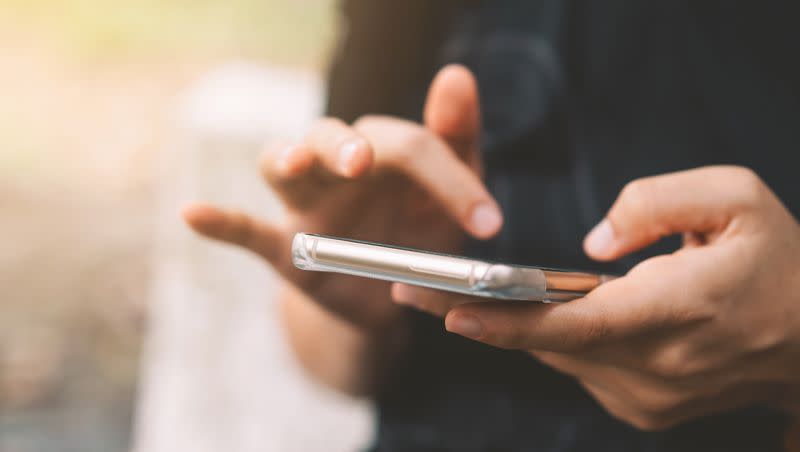4 apps to help you take care of yourself

Mental health can be more than taking medication and seeing a doctor. It’s a daily process that involves taking care of your whole self. We’ve found several apps to help you improve your self-care, along with personal recommendations that I’ve used on my mental health journey.
Keep in mind that these apps are not meant to replace professional therapy and medical options. If you are not emotionally or mentally well, it might be time to consult a professional. If you or a loved one are considering suicide, please contact the suicide prevention hotline.
What is the best mental health app?
1. Headspace
Sleep is an important aspect for everyone’s health. But some people have a harder time falling asleep than others, which can have negative consequences.
That’s where apps like Headspace can be useful. A meditation and sleep app, it includes meditation exercises, calming sounds and music, and other features to help you get the rest and calm you need.
Headspace also has a website with additional resources such as articles to help you learn about meditation, sleep and how you can apply its practices into your daily life.
Headspace requires a subscription to use, but it also has free trials. You can find more information here on its website.
2. Habitica
If you struggle to keep up with a habit or want to create a new one but without the hassle of writing it down, then this app could help you. Meant to help you with your habits, Habitica is an app that takes your life and transforms it into a video game.
The idea is simple. You insert into the game anything you want to keep track of and it will convert those into monsters you have to defeat in the game. You also create your own avatar and the better you are at keeping your habits, the more accessories you can get.
Meant to help people of all ages, this app is free to use and available on Android, iOS and its website, habitica.com.
3. Journaling apps
Journaling can be a therapeutic way to gather your thoughts and explore your emotions, all with privacy so that no one can read them. I’ve gone through many apps, some including daily prompts, while others were more free-range.
There are lots of digital journaling options out there, so you can just test several out until you find one that suits you best. Some apps are simple in design, while others are more detailed. Their pricing varies between free and costing money.
4. Sanvello
Sanvello is an app meant specifically to help depression, anxiety and stress. I used it in college while simultaneously taking therapy classes and found it helpful.
According to its website, this is how the app works: Everyday it will ask how your mood is and rate it. You also can participate in what’s called a guided journey that can help you develop specific life skills.
You will have access to coping skills, progress assessments, peer support and more. The app starts free, but you can upgrade your plan.
Tips to avoid getting duped by other apps
With so many options for self-care apps, some of them may be selling you phony advice. Here’s what to be aware of, according to the American Psychiatric Association and Forbes Health.
Avoid apps that say they are using a new technique, but said technique has not been clinically proven to be useful.
Discontinue using apps that are giving you contradictory or misleading information about your mental health (such as giving you a diagnosis for a mental health condition that hasn’t been given by a doctor).
Avoid apps that are not secure with your personal health data, e.g. they sell it without disclosing it to you.
Do find apps that have been used in clinical trials and research studies, with proven results.
Look for an app that fits your specific need.
Use apps that are compatible with your phone or device, or find out if there is a desktop version you can use.
Offline ideas for self-care
Sometimes apps and phones can only do so much. Here are suggestions from Forbes Health and the National Institute of Mental Health on what self-care you can do that doesn’t involve technology.
Exercise a little bit every day.
Eat healthy food.
Make sure to get the recommended amount of sleep for your age.
Have healthy relationships with others.
Create reasonable goals and go through with them.
Pursue an activity or hobby that relaxes you.

